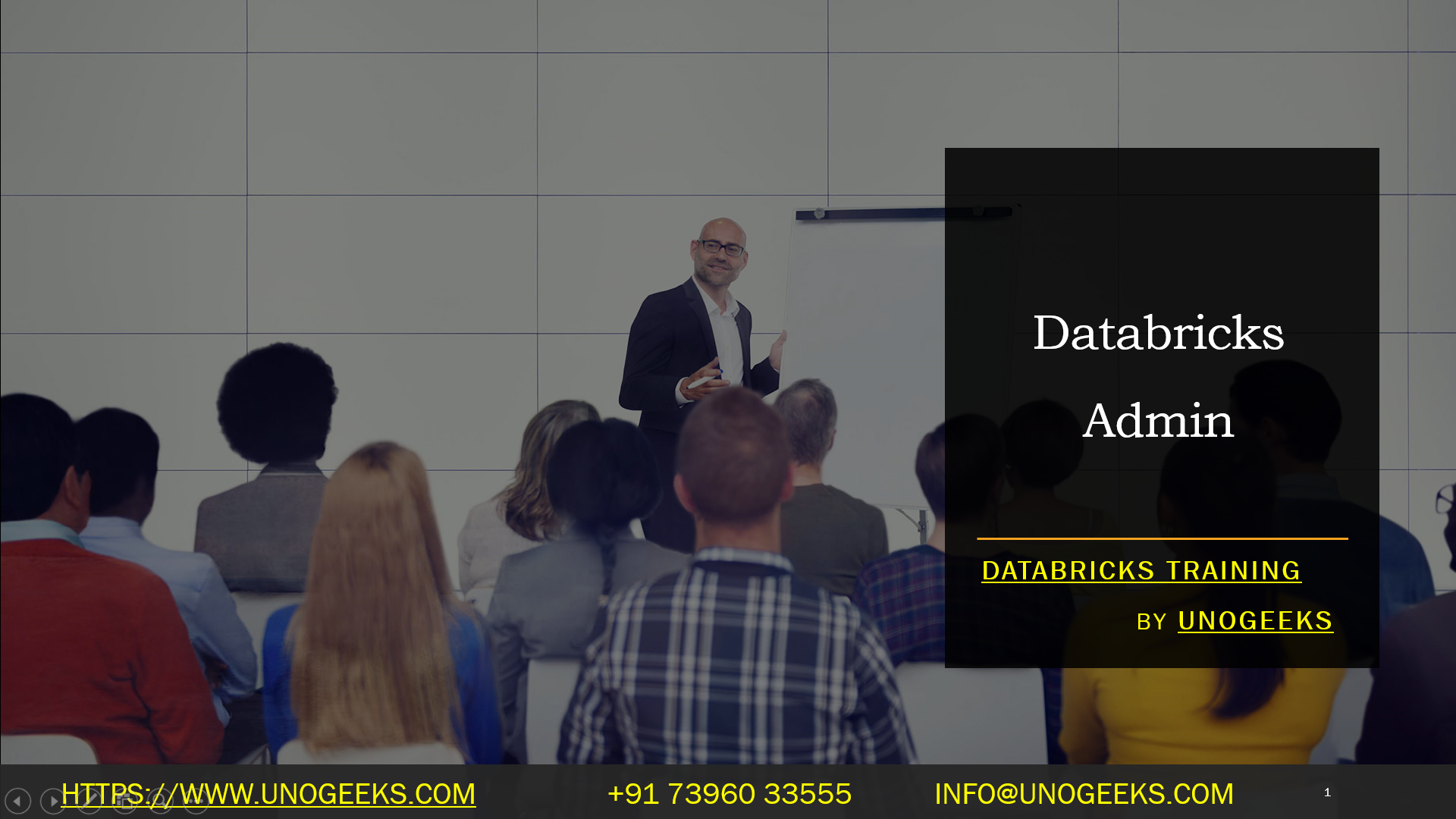Databricks Admin
Databricks Admin
Here’s a breakdown of what it entails, key responsibilities, and how to get started:
What is a Databricks Administrator?
A Databricks administrator oversees the configuration, management, and security of a Databricks environment within an organization. They work with different teams to ensure the platform runs smoothly for data scientists, engineers, and analysts.
Key Responsibilities of a Databricks Administrator
- Workspace Management: Creating and configuring Databricks workspaces.
- Setting up and troubleshooting cloud resources (e.g., in AWS, Azure, or GCP environments)
- User and Group Management: Adding and removing users.
- Assigning user roles and permissions (workspace admins, users, etc.).
- Implementing single sign-on (SSO) for user authentication.
- Access Control: Establishing data governance principles.
- Managing access to clusters, jobs, notebooks, tables, and sensitive data using table and cluster access control.
- Computer Management: Creating and configuring compute clusters.
- Enforcing compute usage policies to optimize costs.
- Monitoring and Auditing: Monitoring workspace usage, job status, and cluster health.
- Maintaining audit logs for operations.
- Security: Ensuring data encryption at rest and in transit.
- Implementing compliance standards as needed.
How to Become a Databricks Administrator
- Technical Background:
- Strong understanding of cloud platforms (ideally AWS, Azure, or GCP).
- Familiarity with data engineering and big data concepts.
- Some programming experience (Python, SQL) is helpful.
- Databricks-Specific Knowledge:
- Go through the official Databricks documentation: https://docs.databricks.com/en/administration-guide/index.html.
- Enroll in Databricks Academy courses or consider attending live training: https://www.databricks.com/learn
- Look into the Databricks Certified Platform Administrator Accreditation: https://www.databricks.com/learn/certification/platform-administrator-accreditation.
- Practical Experience:
- Consider setting up a personal Databricks workspace or the free community edition for practice.
- Contribute to open-source projects that utilize Databricks.
Additional Tips
- Network: Connect with other Databricks admins or professionals on LinkedIn, forums, or through Databricks events.
- Stay Updated: Databricks is an evolving platform. Keep up with new features and best practices.
Databricks Training Demo Day 1 Video:
Conclusion:
Unogeeks is the No.1 IT Training Institute for Databricks Training. Anyone Disagree? Please drop in a comment
You can check out our other latest blogs on Databricks Training here – Databricks Blogs
Please check out our Best In Class Databricks Training Details here – Databricks Training
Follow & Connect with us:
———————————-
For Training inquiries:
Call/Whatsapp: +91 73960 33555
Mail us at: info@unogeeks.com
Our Website ➜ https://unogeeks.com
Follow us:
Instagram: https://www.instagram.com/unogeeks
Facebook:https://www.facebook.com/UnogeeksSoftwareTrainingInstitute
Twitter: https://twitter.com/unogeeks
